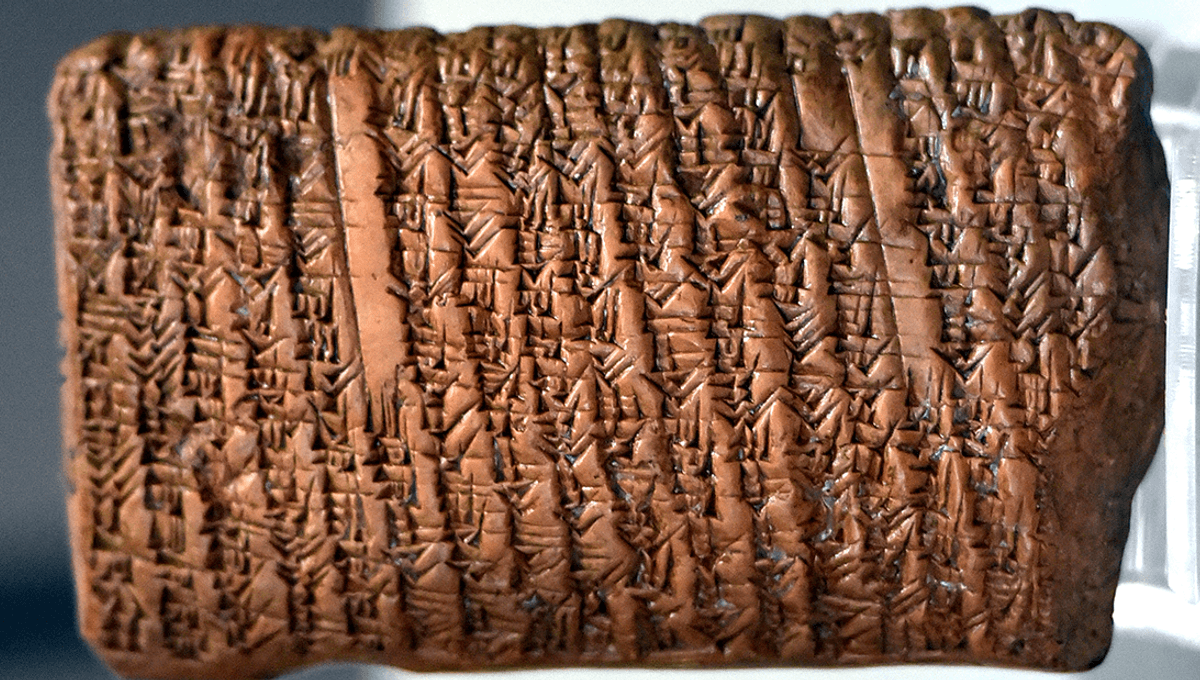Study math for long enough and you will likely have cursed Pythagoras’s name, or said “praise be to Pythagoras” if you’re a bit of a fan of triangles.
But while Pythagoras was an important historical figure in the development of mathematics, he did not figure out the equation most associated with him (a2 + b2 = c2). In fact, there is an ancient Babylonian tablet (by the catchy name of IM 67118) which uses the Pythagorean theorem to solve the length of a diagonal inside a rectangle. The tablet, likely used for teaching, dates from 1770 BCE – centuries before Pythagoras was born in around 570 BCE.
Pythagoras CANCELLED for ACADEMIC PLAGIARISM
3 hours later
“Pythagoras issues an apology video for stealing his crowning achievement from a piece of clay”
Tablet man sues Pythagoras for IP infringement
How do I pronounce 17 arrows pointed in different directions? click click clack?
Telephone router noises, the universal language
“It was just parallel thinking, bro…”
literally 90% of human history has gone unrecorded, and what has been recorded usually gets destroyed, ransacked or deliberately destroyed, Caligula’s pleasure barges, Tower of Babel, Library of Alexander. Humans have tried to keep knowledge retained. and some people take that personally.
remember when ISIS was at its peak they were just destroying artifacts like it was a kid in a candy store. And that’s just been in the 35 years I’ve been alive.
when Rome fell it took another century for civilization to rediscover the technology and applied lessons used then.
and im a dumb idiot, I’m just making a broad skim, if you could ask a historian they’d likely tell you all the things humans have lost, purposefully destroyed or forgotten along the way.
It’s even more amazing than that in the case of Rome. To cite just one example, by the time of Constantine I in the mid-300s CE, Rome could support armies totaling 650,000 men. The logistics and organization required to do that are staggering. After the fall of Rome, it would take until the time of Napoleon’s Grand Armee in the early 1800s before numbers like that were fielded again. Even today, there are relatively few countries with an active military force of that size. They weren’t just sitting around either. Rome was always fighting someone. It speaks to the ability of ancient peoples to organize and support truly massive endeavors and sustain them over literal centuries. I mentioned Napoleon’s Grand Armee earlier. It was large, but it only lasted for about 5 years.
So, yes, a ton of technology was lost for a long time, both physical and social/organizational.
Ah yes the Claytablorean Theorem
Study math for long enough and you will likely have cursed Pythagoras’s name, or said “praise be to Pythagoras” if you’re a bit of a fan of triangles.
What? Why? @Salamendacious@lemmy.world would you care to elaborate? Who curses Pythagoras? Fourier? Sure! Laplace? Fuck that guy AND the goat he rode in on! And don’t get me started on Fermat and his silly margin note joke. But Pythagoras?
Reminds me of the mediaeval nun who erased a manuscript by Archimedes who was laying out the basics of calculus long before it was formally “invented” by Newton and Leibnitz because she needed space to write prayers.








